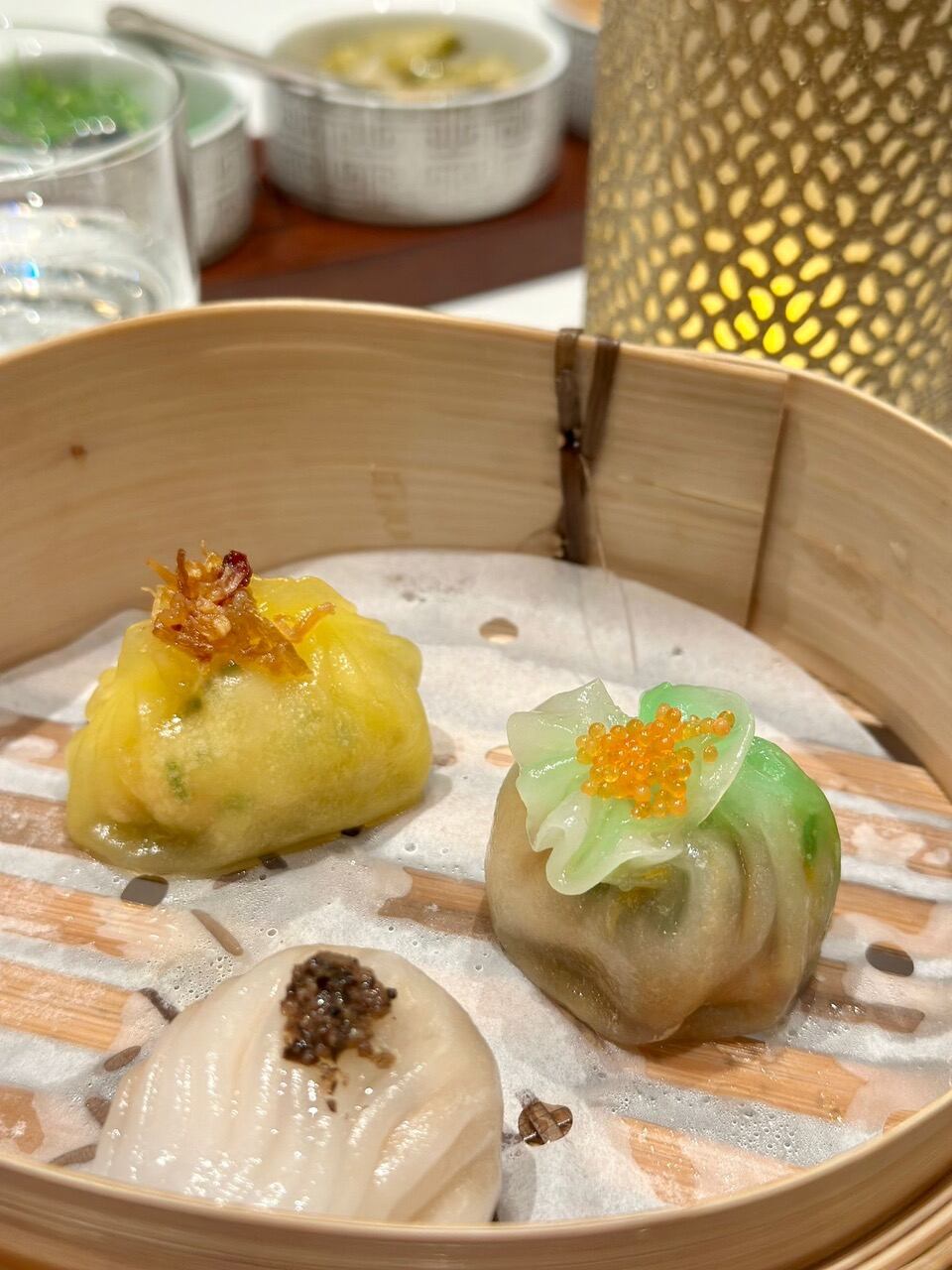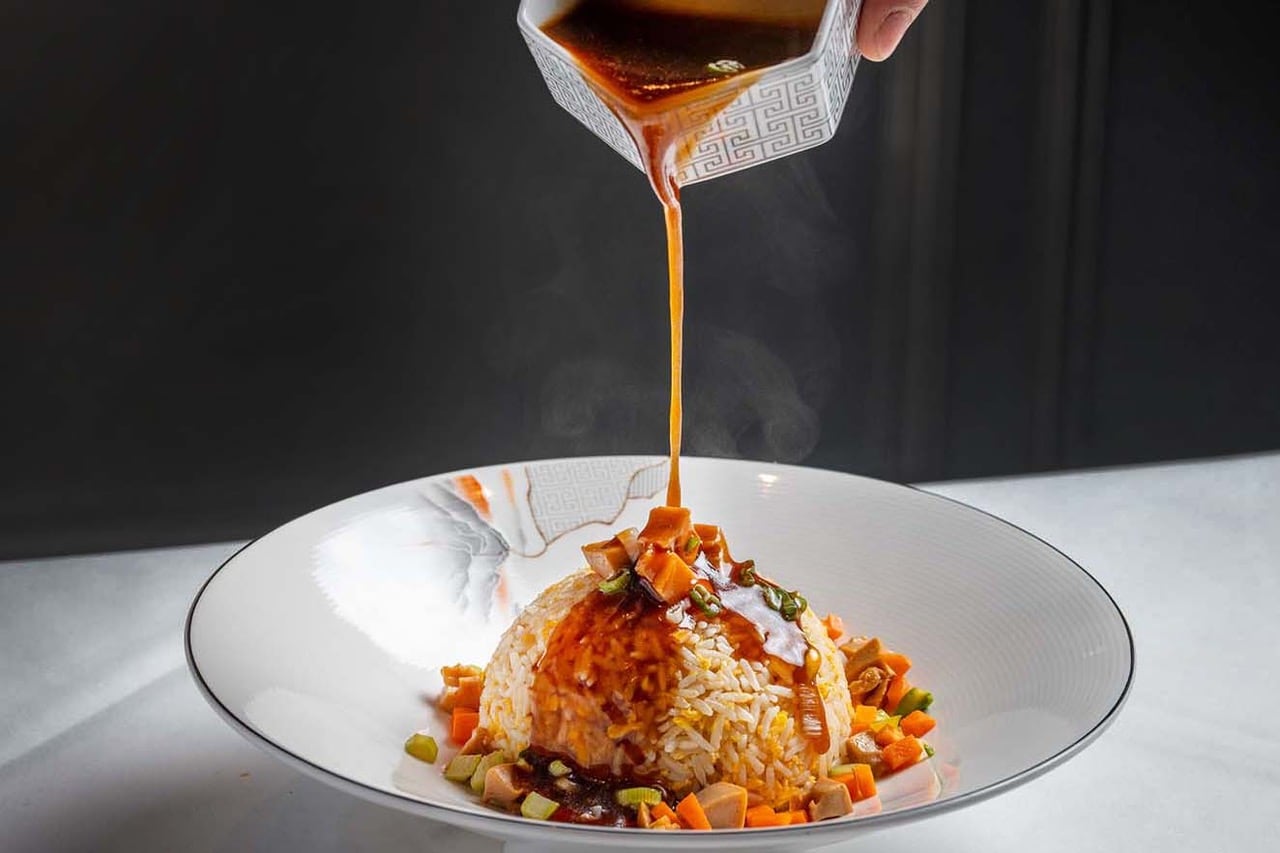London’s Chinese restaurant market has seen huge changes over the past decade or so. Why?
Anglo Cantonese restaurants are closing and being replaced by more authentic Chinese restaurants. It started slowly about 20 years ago. The first Chinese people that opened restaurants in London and the UK were from the south of the country, in particular Hong Kong. They were not chefs or restaurateurs, they just needed to make a living so they created so-called Chinese restaurants that would appeal to the UK palate. The food was often sweet and sour, as that is one of the key flavour profiles of that part of the country. I’m part of a new generation that came to the UK at the turn of the century from mainland China. More often than not, we left to study; we are more educated and want to serve more authentic cuisine. Our arrival also coincided with Western people being more interested in having the real thing.
Why have things accelerated so much post pandemic?
The restaurant scene in China is developing rapidly following the rise of the new middle class and that is now being reflected outside of China. Alongside this, many well-off people in China are leaving the country for political reasons and because of the poor economy. Because of this, a lot of China-founded restaurant brands are entering the London market, which is something that has never really happened before. Their arrival has had a big effect on what existing Chinese restaurants in London are doing because they are having to respond to a new wave of competition.
When did you arrive in London?
I came in the early 2000s from Hubei (a province in central China). I came to study but, to support myself, I worked in a Chinese medicine shop on Goodge Street (in central London’s Fitzrovia neighbourhood). My boss noticed that I was a very effective manager. He had just acquired a restaurant site (also on Goodge Street) and gave me the opportunity to run it. I didn’t have any experience of running a restaurant, but I’m a big foodie and was lucky enough to be brought up in a well-off household, meaning that we were able to eat out in a lot of restaurants. That site (Sanxia Renjia, an authentic Sichuanese and Hubei restaurant that is primarily aimed at the Chinese market) launched in 2010. We have since opened further Sanxia Renjia restaurants in Kingston and Bromley, alongside Treasure of China (a more mainstream Chinese restaurant also in Bromley), and Yaya Sushi and Noodles (on Goodge Street). We hope to open five more restaurants over the next few years and are likely to focus on Yaya Sushi and Noodles.
Tell us about your most recent restaurant project
3 Gorges launched earlier this year and is our first high-end Chinese restaurant. Our chef is originally from Jiangsu province (which is near Shanghai in the east of the country). He came to London 15 years ago and worked under chef Tong Chee Hwee at Hakkasan’s original restaurant on Hanway Place (which closed earlier this year after nearly 25 years’ trading). A few years ago, he followed Chef Tong to help him launch Gouqi (a high-end restaurant near Trafalgar Square). He is an extremely talented chef and is, as far as I know, the only chef from mainland China cooking high-end Chinese cuisine in London. Most chefs cooking Chinese cuisine at a high level over here are from either Hong Kong or other countries in South Asia, Malaysia in particular.

Tell us about the menu at 3 Gorges
The food isn’t from any one region of China. It is modern Chinese cuisine, which is based on the eight traditional cuisines of China (Anhui, Cantonese, Fujian, Hunan, Jiangsu, Shandong, Sichuan, and Zhejiang). Our menu includes double-boiled herbal duck soup; charcoal grilled padron peppers stuffed with minced pork and prawns; and eight treasure duck (a complex Cantonese dish that sees the bird stuffed with eight premium ingredients including abalone, dried shrimp and Jinhua ham). It is very unusual for a restaurant to offer this dish all year round – it is typically reserved for holidays and festivals.
It hasn’t been the easiest launch…
Yes. We are quiet at the moment (the restaurant received an unfavourable mention from Giles Coren shortly after launching) and some people have told us it is the wrong concept for the area. But we know Fitzrovia very well and believe it to be well positioned to attract both Westerners and well-off Chinese people. We are also very confident in the abilities of our chef. Over the past few months, we have changed things up following diner feedback. We now offer à la carte alongside our wide range of set menus and have made some changes to our front-of-house team.
What’s behind the restaurant’s name?
3 Gorges is actually the English translation of Sanxia Renjia, the name of our first restaurant. It refers to the Three Gorges of the Yangtze River, a very famous and scenic area close to where I grew up.


